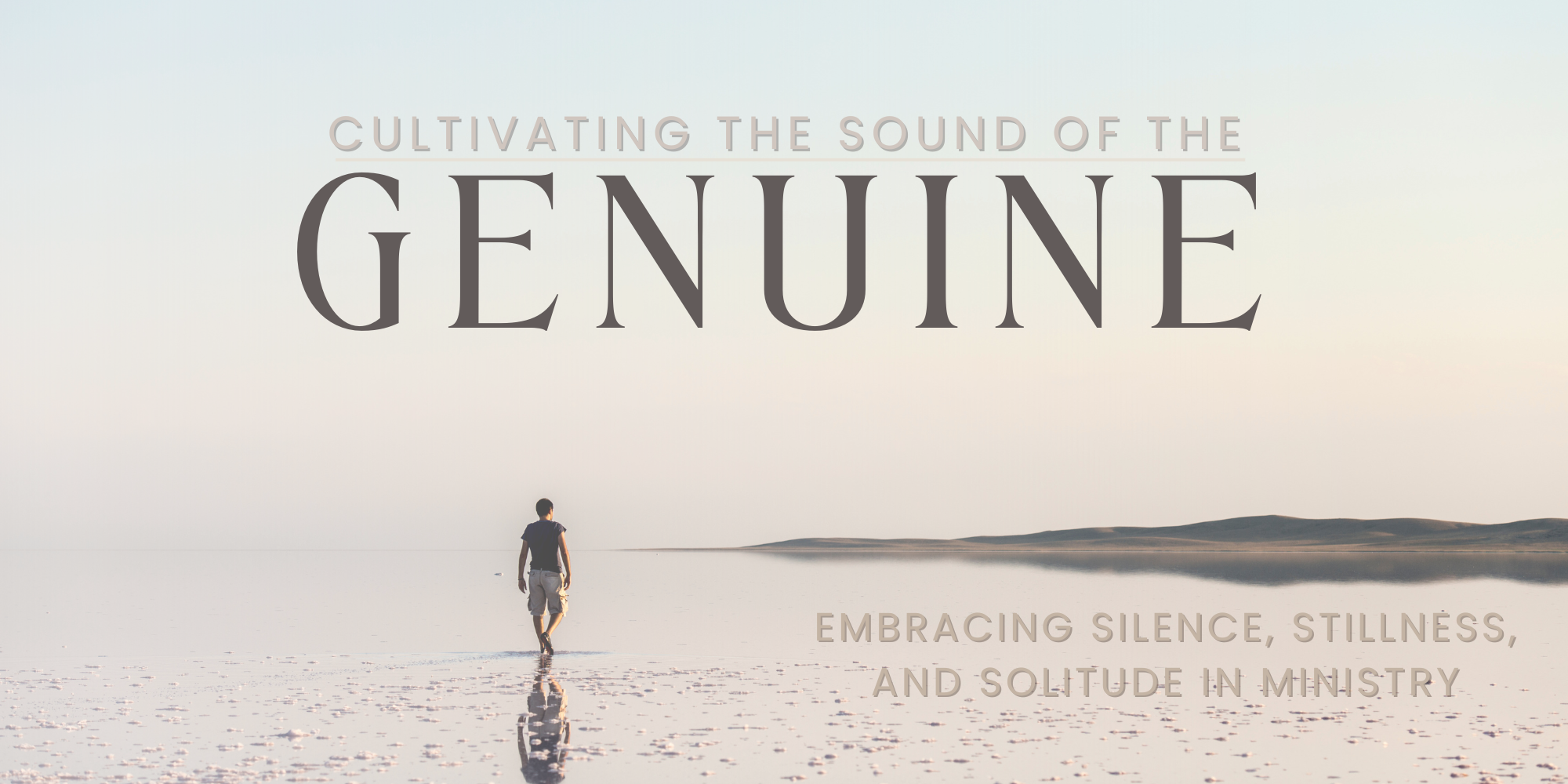Over the last 20 years of my life in ministry, I have become convinced of the importance of having a vibrant and robust interior life that grounds and informs our ability to discern faithfully what we should do in the church and world. I have experienced the transformative power of the regular and rhythmic practices of solitude, silence, stillness, and sabbath rest. They have helped me become more familiar with the cadence of God’s voice and the rhythms of God’s leading so that my “yes” and “no” are often spoken in clarity, peace, and freedom. My discerned activity is frequently aligned with my sense of vocation, or what Howard Thurman called “the sound of the genuine.” If we are to be discerning leaders in these liminal and messy times of the church, we must cultivate the sound of the genuine in ourselves. How are you cultivating the sound of the genuine in yourself?
The sound of the genuine is cultivated when we regularly slow down, still, and quiet ourselves long enough to be reminded that “in quietness and trust is our strength and in returning to rest we shall be saved (Isa. 30:15). I know this may sound like some unrealistic monastic life, disconnected from the crowded and demanding life of pastoral leadership and yet it is the ground of our being and the source of being able to effectively lead and discern the direction of the church. Danny Morris and Charles Olsen put it this way, “the habit of spirituality precedes the practice of discernment because if the Holy Spirit has not been welcomed into the life of the discerner, practices of discernment will be empty and impotent. The habit of discernment constitutes a way of being, by which we are steeped in spirituality as a way of life…” (Discerning God’s Will Together, pg. 42). What are your current habits of spirituality and discernment?
Silence and stillness are key spiritual habits for the discerning leader. Elizabeth Liebert names six qualities in individuals that foster discernment, and the first is the ability to embrace silence. Silence is “an inner settledness, calmness characterized by an absence of internal chatter, a readiness to listen for the subtle traces of God’s communication. However, they might come and even have a sense of expectancy at what God will do in silence. Both individual discerners and discernment groups need enough comfort with silence to be patient with prolonged silence, recognizing that some things can only be learned through it (The Soul of Discernment, pgs. 41-42). Silence is the posture of openness, receptivity, and vulnerability and communicates our openness to hear and receive a path, vision, or direction that does not come from our striving or ingenuity but is new, unknown, risky, and sometimes even foolish. How might you begin a practice of silence? Suppose we are to help discern the variety of circumstances the church is facing and enter the turbulent and chaotic waters of our time. In that case, we must have a way of life that is steeped in a spirituality of silence that cultivates the sound of the genuine in each of us.

Leave a Reply